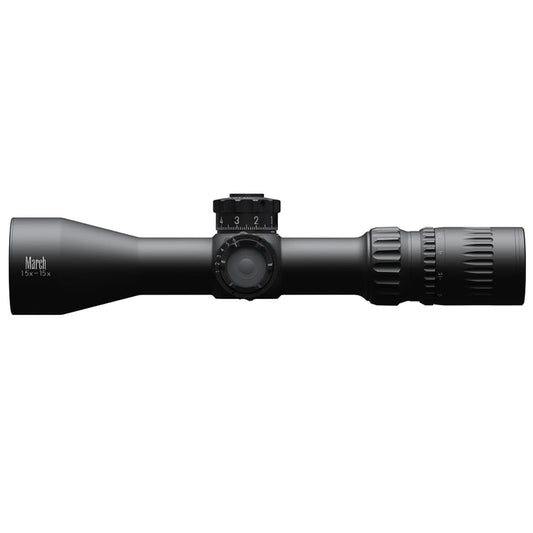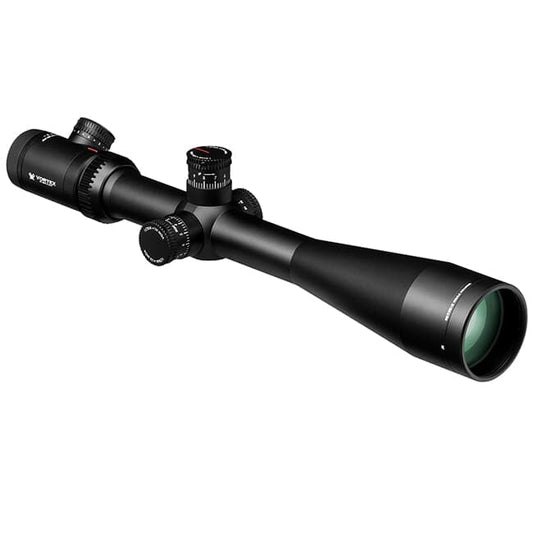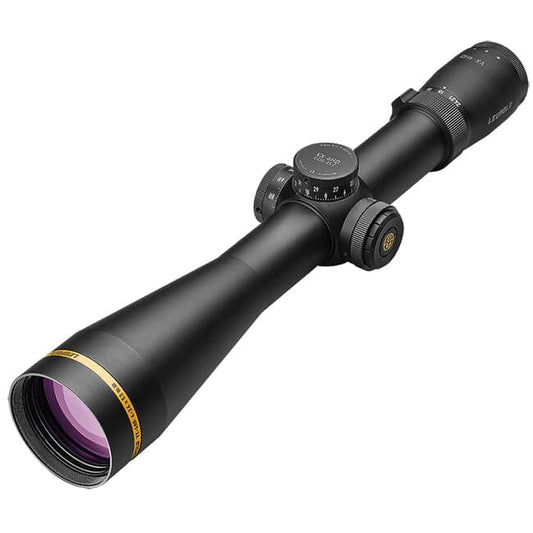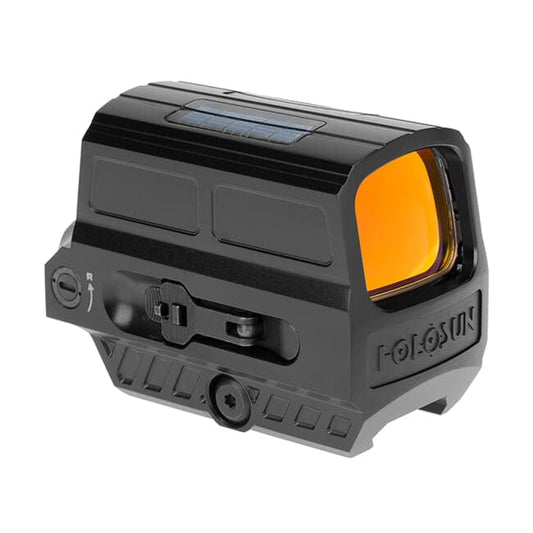

March Compact 1.5-15x42mm FD-2 Reticle Illuminated Riflescope provides precision shooting capabilities in a compact form. With a magnification range of 1.5x to 15x, it accommodates both close-range engagements and long-distance accuracy. The second focal plane FD-2 reticle allows for consistent aiming points across all magnification levels. This scope excels in low-light conditions, bringing in over three times more light than many competitors, ensuring bright and clear images when it matters most.
Equipped with tactical turrets that enable quick windage and elevation adjustments, the March Compact is perfect for rapid shooting scenarios. The scope features adjustable illumination with six brightness settings, making it adaptable to changing light environments. Its robust construction guarantees durability, making it suitable for various shooting conditions, whether on the range or in the field.
Features:
- ENHANCED LIGHT TRANSMISSION for ultra-bright images in low light conditions.
- SECOND FOCAL PLANE RETICLE maintains precise aim at every magnification.
- ADJUSTABLE ILLUMINATION with six settings to match the lighting of your environment.
- FAST FOCUS EYEPIECE allows for quick target acquisition without fumbling.
- EXPOSED TACTICAL TURRETS provide rapid, precise adjustments for windage and elevation.
- COMPACT DESIGN makes it ideal for semi-automatic platforms and tactical setups.
- HIGH-QUALITY OPTICS ensure crisp, clear images with excellent resolution.
- DURABLE CONSTRUCTION built to withstand rugged conditions and heavy use.
Technical Specifications Table
| Specification | Details |
|---|---|
| SKU | D15V42TIML-FD-2-March |
| Magnification Range | 1.5x - 15x |
| Lens Diameter | 42mm |
| Weight | 22 ounces |
| Eye Relief | 69mm - 113mm |
| Field of View | 70.2 feet @ 100 yards |
| Reticle Position | Second Focal Plane |
| Parallax Adjustment | 10 yards to infinity |
What’s in the Box?
- Sunshade
- Flip Caps (Objective & Eyepiece)
- Fast Lever
- Battery (CR2032)
- Lens Cloth
- Hex Key
Customer Reviews
"This scope has transformed my shooting! The clarity is outstanding, even in low light conditions." - John D.
"The illuminated reticle is a game changer. Quick adjustments are easy with the tactical turrets." - Mike S.
FAQ
How does the illumination work in varying light conditions? The six levels of illumination allow you to adapt to different environments, ensuring you have optimal visibility at all times, from bright daylight to low-light conditions.
What makes the FD-2 reticle unique? The FD-2 reticle is designed with a precise illuminated center dot and 1 MIL hash marks, providing both clarity and accuracy for long-range shooting and compensating for bullet drop and wind drift.
Similar Models
Looking for more options? Explore our extensive March Scopes collection, including models like the March 1-10x24mm for a broader view and the March 4-16x52mm for enhanced long-range capabilities. Discover the perfect optics tailored to your shooting needs today!
You May Also Like
Here’s some of our most similar products people are buying. Click to discover trending style.









